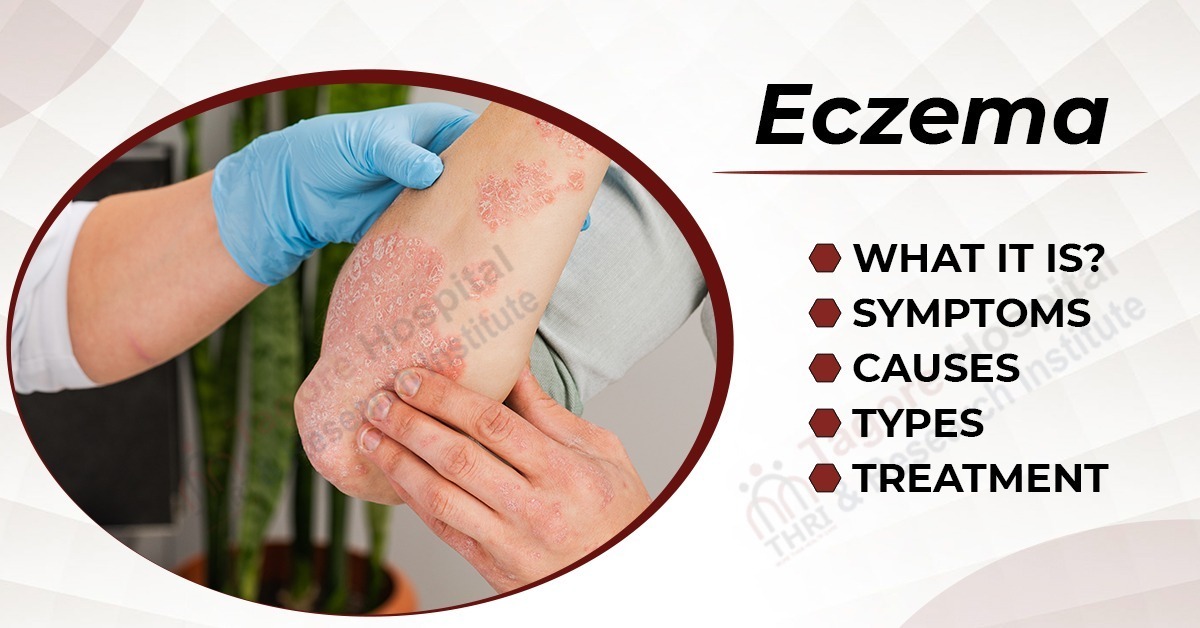Eczema, also known as atopic dermatitis, is a chronic skin condition characterized by itchy, inflamed, and often dry skin. It can be uncomfortable and challenging to manage, but there are numerous treatments available that can help alleviate symptoms and improve skin health. Understanding the various options can empower those affected by eczema to take control of their condition. Here’s an in-depth look at the most effective eczema treatments and management strategies.
Understanding Eczema
Eczema is a multifaceted condition that can be triggered by a variety of factors, including genetics, environmental elements, and immune system dysfunction. Common symptoms include:
- Itchy Skin: Often intense and persistent, leading to scratching and further irritation.
- Inflammation: Red, swollen patches that can be painful and tender.
- Dryness: Cracked, scaly skin that can worsen with weather changes or exposure to irritants.

- Rashes: Can appear anywhere on the body, commonly on the hands, feet, face, and behind the knees.
Effective Treatments for Eczema
-
Moisturizers and Emollients:
- Importance: Keeping the skin well-hydrated is crucial for managing eczema.
- Types: Use thick creams or ointments like petroleum jelly, shea butter, or products specifically formulated for eczema.
- Application: Apply several times a day, especially after bathing, to lock in moisture.
-
Topical Steroids:
- Function: Reduce inflammation and itching.
- Strengths: Available in various strengths, from mild (over-the-counter) to potent (prescription).
- Usage: Apply directly to affected areas, following a healthcare provider’s instructions to avoid side effects.
-
Topical Calcineurin Inhibitors:
- Examples: Tacrolimus (Protopic) and pimecrolimus (Elidel).
- Function: Suppress the immune response that causes inflammation.
- Usage: Suitable for sensitive areas like the face and eyelids, and for long-term management.
-
Oral Medications:
- Antihistamines: Help reduce itching, especially at night.
- Corticosteroids: Used for severe flare-ups to quickly reduce inflammation.
- Immunosuppressants: For severe cases unresponsive to other treatments, such as cyclosporine or methotrexate.
-
Phototherapy:
- Process: Involves exposing the skin to controlled amounts of natural or artificial UV light.
- Benefits: Can reduce inflammation and itching, and improve skin appearance.
- Supervision: Must be done under medical supervision to avoid risks associated with UV exposure.
-
Lifestyle and Home Remedies:
- Bathing Practices: Use lukewarm water and gentle, fragrance-free cleansers. Follow with immediate moisturizing.
- Avoid Triggers: Identify and avoid irritants such as certain soaps, detergents, and fabrics. Keep a diary to track and identify potential triggers.
- Manage Stress: Stress can exacerbate eczema symptoms. Techniques such as yoga, meditation, and regular exercise can be beneficial.
- Diet: Some individuals find relief by avoiding certain foods that may trigger their eczema, such as dairy, gluten, or nuts.
-
Alternative Treatments:
- Natural Remedies: Some people find relief using coconut oil, sunflower oil, or aloe vera gel. These can be soothing and help to moisturize the skin.
- Supplements: Omega-3 fatty acids, vitamin D, and probiotics may help improve skin health, but consult with a healthcare provider before starting any supplements.
When to See a Doctor
- Persistent Symptoms: If eczema symptoms do not improve with over-the-counter treatments or worsen.
- Infection Signs: Such as increased redness, pus, or fever, indicating a possible skin infection.
- Severe Flare-Ups: That significantly impact daily life and comfort.















